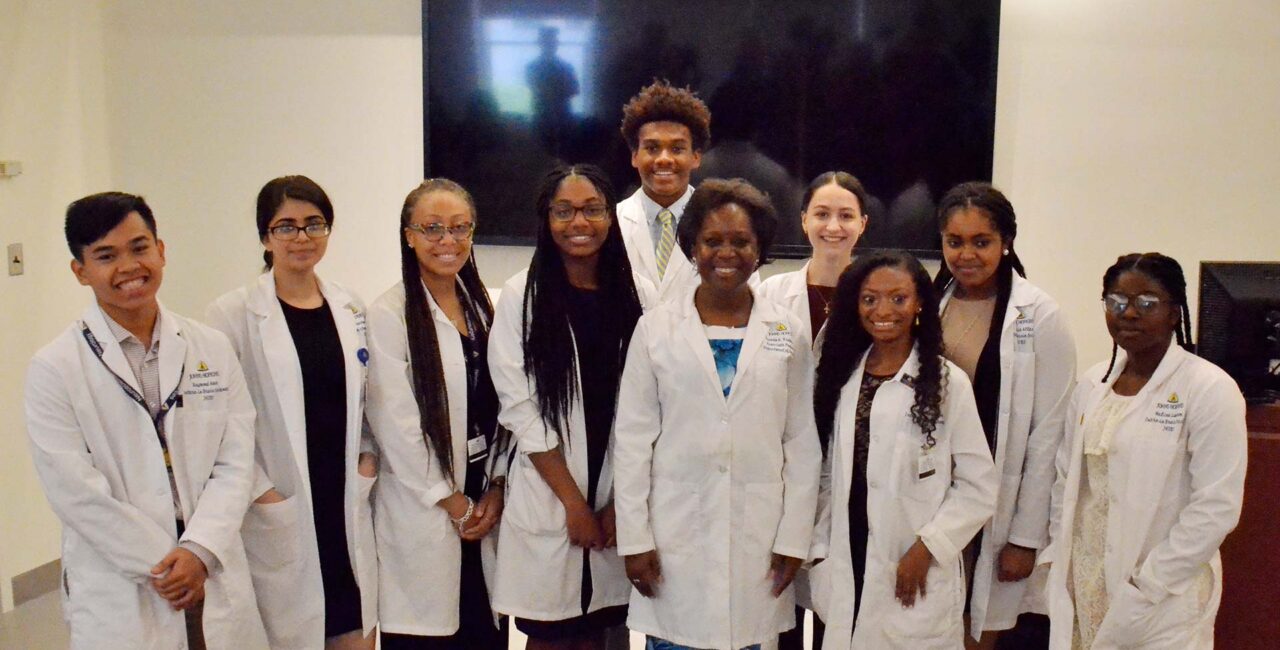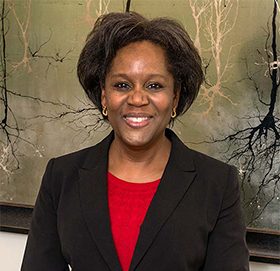Fannie Gaston-Johansson Associate Professor, Department of Neurology and Neuroscience
Associate Editor, Journal of Neuroinflammation
Director, Johns Hopkins Internship in Brain Sciences
Director, Johns Hopkins Neuroscience Scholars Program
Director, Johns Hopkins NeuroHIV-Comorbidities Scholars Program
Co-Director, Development Core, Johns Hopkins Center for the Advancement of HIV Neurotherapeutics
Dr. Amanda Brown joined Johns Hopkins University School of Medicine (JHUSOM) in 2004 and moved up the faculty ranks, achieving to date the level of Associate Professor in December 2016. She has made major contributions to the identification and understanding of cellular pathways involved in primary human macrophages that are required for HIV-1 replication and which promote a proinflammatory environment in the brain. The goal of research in her laboratory is to identify and understand the molecular mechanisms leading to HIV-mediated inflammation in the brain and its impact on neuronal function, learning, and memory. The product encoded by the SPP1 gene is a unique multifunctional protein that is elevated in the central nervous system in HIV-related neuronal damage and other well-known neurodegenerative disorders. Her lab is using several experimental paradigms to test hypotheses, including humanized mice, which can be productively infected with HIV and subjected to neuroimaging and behavioral testing, as well as in vitro human myeloid, and neuronal culture models to dissect and understand molecular mechanisms. With these approaches, the ultimate aim is to apply the knowledge gained to develop new and better treatments to ameliorate HIV-associated cognitive comorbidities. Her research has been funded with support from the National Institutes of Mental Health, the National Institutes of Neurological Disorders and Stroke and the Landenberger Research Foundation.
Alongside of running an independent laboratory, Dr. Brown is enthusiastically invested in training and inspiring the next generation of neuroscientists and mentoring is a key core competency in this work. Over the last decade, she has directed a philanthropic- and National Institutes of Mental Health (NIMH) funded program, the Johns Hopkins Internship in Brain Science Program: Project Pipeline Baltimore, that provides experiential research training in HIV-associated neuropsychiatric disorders and neuroscience topics to high school students. She co-directs another NIMH-funded program to increase workforce diversity in the area of HIV neuroscience and mental health that targets trainees at the graduate to early career levels. She also serves as co-director of the Developmental Core for the NIMH Johns Hopkins Center for Novel Therapeutics for HIV-Associated Cognitive Disorders, mentoring since its inception over 30 young investigators and early career faculty to secure pilot grant funding and apply for larger grants. Dr. Brown has mentored to date more than 160 high school junior and seniors, and with 10 of the 21 undergraduates, has published cited journal articles with them. Among the undergraduates from URM backgrounds that she has mentored several have received advanced degrees at Ohio State University, Massachusetts Institutes of Technology (MIT), University of California San Francisco (UCSF), and the University of Kentucky. These trainees have continued their training to become postdoctoral researchers and physicians. Through the didactic web-based program, Translational Research in NeuroAIDS and Mental Health, she has helped bring training to to over 380 graduate-level to early career faculty. At the institutional level, she has for the last four years, served on the school wide Diversity Leadership Council, and through efforts on the Faculty Development and Recruitment Subcommittee helped formulate recommendations to university leadership and played a key role in the roll out of the Roadmap, a living institution wide plan to increase excellence in diversity and inclusion at all levels of the university. Lastly, she has since 2015, led the JHUSOM clinical neuroscience department’s engagement and outreach efforts with community in Baltimore City, an effort that was established after the Freedie Gray uprising.
Dr. Brown was selected as a Keystone Symposia on Molecular and Cell Biology Fellow for 2014, the AAMC Mid-Career Minority Faculty Leadership Seminar and for her work in helping to diversify the training pipeline, in 2014 she received the Johns Hopkins Diversity Leadership Award. Most recently she was nominated for the Provost Prize for Faculty Excellence in Diversity, nominated for the Inaugural NINDS Story Landis Mentoring Award and in 2018, received the Johns Hopkins University School of Medicine Living the Hopkins Mission Honor.



